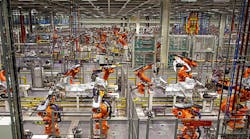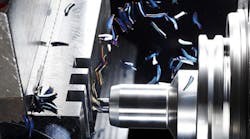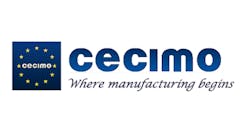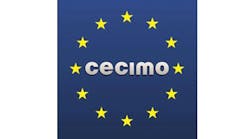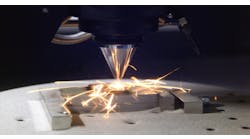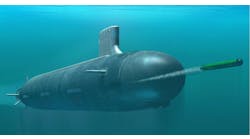Europe’s machine tool production increased slightly during 2013, rising €100 million (est. $135 million) to €22.8 billion (est. $31 billion) from the previous year — an increase that CECIMO explained by the region’s economic recovery and expansion over that time. However, the trade group cautioned that growth prospects remain “modest” in Europe, and so its outlook for significant growth in that sector during 2014 is low.
The new results and forecast were issued by CECIMO’s Economic Committee following the group’s general assembly in late June.
CECIMO is a consortium of 15 national associations of machine tool builders, and represents approximately 1,500 industrial enterprises in the E.U., European Free Trade Assn. (EFTA), and Turkey. It covers more than 97% of total machine tool production in Europe, and more than 33% worldwide.
The group issued a midyear statement highlighting conditions for its constituent industries, leading with an acknowledgement that economic growth in emerging markets reduced CECIMO member’s machine-tool exports by 3% during 2013, to €18.2 billion ($24.8 billion.)
Changes in government tax policies in some of these emerging markets have reduced the volume of new capital investment, CECIMO stated, apparently referring to Chinese attempts to manage the rate of economic expansion.
However, it characterized this circumstance as a short-term factor. In the medium term, it forecasts that an expanding middle-class in such markets will foster expansion of machine tool demand, “because of higher consumption in the form of rising per capita spending on manufactured goods and services.”
In its home markets, CECIMO forecast continued steady progress. European machine tool consumption increased 2% during 2013, having contracted during 2012. Having expanded now for four quarters in a row, EU manufacturers are updating their production capacity. Slow growth, but growth that is spread over a wider base of operations, and other economic indicators, support this ongoing trend, CECIMO stated. It estimated a 2% increase in 2014.
Finally, CECIMO noted the 2013 increase in new orders for machine tools from EU-based operations, 6% in the current quarter-to quarter comparison, and 1% on an annual basis.
Imports of machine tools in the CECIMO region declined 5% to €8.0 billion ($10.9 billion) last year —indicating that EU manufacturers investing in new production equipment relied on local sources, a conclusion confirmed by the machine tool order intake.
“Demanding European buyers push local machine tool builders to constantly improve and innovate. Close cooperation with those clients ensures the competitiveness of the European machine tool industry globally,” explained D. Frank Brinken, chairman of the CECIMO Economic Committee and a director of Starrag Group, a family of machine tool manufacturers, based in Switzerland. “The trend to take labor costs to a large extent out of the calculation when investing in highly efficient production equipment is unbroken. Therefore, the increase in domestic investment activity is very good news for us.”
CECIMO took the occasion of its forecast to reiterate its position on industrial policy, calling for a “European Industrial Renaissance” and urging European economic planners to recognize the central importance of industrial activity for creating jobs and sustainable economic growth.
The European machine tool sector exports over 80% of its output, CECIMO noted. As the core industry shaping the future for advanced manufacturing, machine tool manufacturers have proven their ability and insight for strategic economic growth.
Yet, while European policymakers have acknowledged these facts, CECIMO maintained that policies are not having the necessary effect. In its statement, it pointed to decreasing rates of manufacturing production lines upgrades, which threatens seriously the competitiveness of European manufacturing, it said — proving that more effective policies are needed on both European and member-state levels.
Jarmo Hyvönen chairman of CECIMO Communication & Advocacy Committee and Managing Director of Machine Tool Center Oy, noted: “The 2009 economic crisis strongly influenced the financial sector. The recapitalization of banks and the contracting economy in regions very affected by the crisis have limited the access to finance for the European machine tool industry and its clients.”
Therefore, CECIMO called for coordinated action by EU region’s political leaders, policy makers, top manufacturers, and financial institutions, to improve the implementation of new production systems, to ensure the competitive position of European manufacturing.
